

CMYK Sinh Thái Dung Môi Dựa Trên I-3200 Sinh Thái Mực Dung Môi Cho EPS Đầu In Mực Sinh Thái Dung Môi
2,99 US$ - 8,80 US$
Min Order: 1 Lít
CNSupplier


Fcolor New 100Ml 1000Ml Dtf Pet Phim Trắng Chuyển Sắc Tố Mực Cho Dtf Phim Máy In I3200 4720 7880 P800 L1800
1,66 US$ - 25,00 US$
Min Order: 5 Lít
CNSupplier


Giá bán buôn UV dtf mực nhà sản xuất UV dtf Máy in mực in mực cho L1800 xp600 dx5 i3200
15,00 US$ - 26,00 US$
Min Order: 10 Lít
CNSupplier
4 yrs


Thân Thiện Với Môi Không Thấm Nước Sinh Thái Dung Môi Mực Máy In Sinh Thái Dung Môi Mực Nước Dựa Ecosolvent Mực Cho Epson Et15000/Xp600/I3200
8,00 US$ - 11,00 US$
Min Order: 1 Cái
CNSupplier
9 yrs

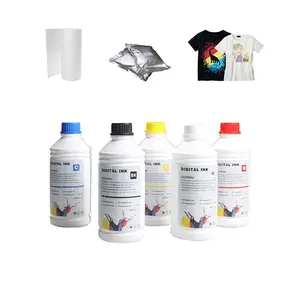
Hot chuyển Áo thun in ấn tất cả các loại ổn định sắc tố mực nhuộm thăng hoa Mực sinh thái dung môi dtf DTG thăng hoa cymk mực
10,00 US$ - 37,00 US$
Min Order: 10 Lít
CNSupplier
9 yrs


Mực In Lụa Mực In Offset UV Mịn Màu Sáng Và Mịn
14,00 US$ - 30,00 US$
Min Order: 50 Kilogram
CNSupplier

Ceres YY 20 màu đỏ tím sang màu xanh lá cây Vàng dung môi dựa trên mực biến quang, 100g/Chai
Sẵn sàng vận chuyển
1,90 US$ - 2,10 US$
Min Order: 100 Gram
CNSupplier
12 yrs

Thương hiệu vàng bù đắp Truyền Nhiệt Mực thăng hoa cho gối in ấn
15,00 US$ - 27,00 US$
Min Order: 20 Kilogram
CNSupplier
12 yrs

Aoricai mực UV Cmyk Trắng vanrish keo VR cho vàng dập trong UV dtf máy in
25,00 US$
Min Order: 1 Lít
CNSupplier
1 yrs

Ceres dung môi dựa trên mực biến quang, 100g/chai, yy 20 màu đỏ tím đến vàng xanh
1,80 US$ - 2,00 US$
Min Order: 100 Gram
CNSupplier
12 yrs

1.0 kg 3 pieces in ấn mực lon cho bù đắp mực đóng gói
0,10 US$ - 0,90 US$
Min Order: 10000 Bộ
CNSupplier
6 yrs

232gsm Pet Trandfer Holographic Ban Ngà Cho Bù Đắp In Ấn Với Mực UV
2.000,00 US$ - 2.100,00 US$
Min Order: 5 Kilogram
CNSupplier
9 yrs

Digital offset VNC Flex x y plotter Inkjet printer price
2.900,00 US$ - 3.500,00 US$
Min Order: 1 Bộ
Color & Page: Multicolor
Warranty: 1 Year
After-Sales Service Provided: Video technical support
Condition: New
CNSupplier
6 yrs
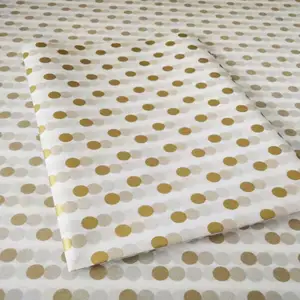
Giấy Gói Hoa Giấy Gói 20 Tờ Mỗi Túi Giấy Gói Hoa
Sẵn sàng vận chuyển
0,08 US$ - 0,20 US$
Min Order: 28 Cái
Shipping per piece: 0,45 US$
CNSupplier

80gsm ướt sức mạnh Bạc Vàng metallized giấy cho bia in ấn nhãn
1.619,00 US$ - 1.649,00 US$
Min Order: 5 Tấn hệ mét
CNSupplier
9 yrs

Bột đồng siêu mịn với vàng nhạt đồng vàng giàu để in ống đồng in offset trang trí sơn tĩnh điện
15,00 US$ - 50,00 US$
Min Order: 25 Kilogram
CNSupplier
2 yrs

Dtf in A3 phim vàng UV in Film cho A3 UV dtf máy in DTG máy in Offset i3200 A3 dtf máy in làm kinh doanh của riêng bạn
2.500,00 US$ - 2.750,00 US$
Min Order: 1 Bộ
Color & Page: Multicolor
Warranty: 1 Year
Condition: New
CNSupplier
3 yrs

Túi 20 Tờ 50*70Cm Quà Tặng Giấy Cói Sang Trọng Thân Thiện Với Môi Trường Thời Trang Hàn Quốc Quà Tặng Giấy Gói Hoa Viền Vàng
0,02 US$ - 0,33 US$
Min Order: 500 Cái
CNSupplier
3 yrs

Hiện đại mới nhất tùy chỉnh-thực hiện 30um vàng và sáng ánh sáng lung linh bột long lanh bột đồng cho ngành công nghiệp mực
14,50 US$ - 26,00 US$
Min Order: 1 Kilogram
CNSupplier
1 yrs
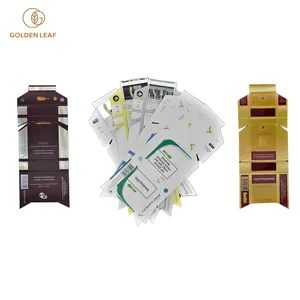
Bù đắp, dập nóng, dập nổi-in Hộp thuốc lá, tùy biến-Vật liệu đóng gói
0,001 US$ - 0,005 US$
Min Order: 500000 Tấm
HKSupplier
1 yrs

Hiện đại mới nhất tùy chỉnh-thực hiện 30um vàng và sáng ánh sáng lung linh bột long lanh bột đồng cho ngành công nghiệp mực
14,50 US$ - 26,00 US$
Min Order: 1 Kilogram
CNSupplier
1 yrs

Trung Quốc thực hiện tùy chỉnh nhiều công nghệ in hình bìa cứng cho bao bì thuốc lá
0,001 US$ - 0,005 US$
Min Order: 500000 Tấm
HKSupplier
1 yrs

Hiện đại mới nhất tùy chỉnh-thực hiện 30um vàng và sáng ánh sáng lung linh bột long lanh bột đồng
14,50 US$ - 16,00 US$
Min Order: 1 Kilogram
CNSupplier
1 yrs

Trung Quốc thực hiện tùy chỉnh nhiều công nghệ in hình bìa cứng cho bao bì thuốc lá
0,50 US$ - 2,00 US$
Min Order: 5000 Kilogram
HKSupplier
1 yrs

Type 05 High Gloss Quick Set Offset Printing Ink
2,00 US$ - 6,00 US$
Min Order: 200 Kilogram
CNSupplier
0 yrs

Trung Quốc thực hiện tùy chỉnh nhiều công nghệ in hình bìa cứng cho bao bì thuốc lá
0,001 US$ - 0,005 US$
Min Order: 140000 Tấm
HKSupplier
1 yrs

In ấn vàng tùy chỉnh tên Cuốn Sách Màu bìa và bên trong trang softcover sách tùy chỉnh in với mực đậu nành
0,32 US$ - 0,82 US$
Min Order: 500 Cái
Paper Type: Duplex Board
Product Material: Paper & Paperboard
Product Type: Book
Surface Finish: Film Lamination
Printing Type: Offset Printing
Binding: Perfect Binding
CNSupplier

In theo yêu cầu Thẻ cuốn sách dịch vụ DTG dịch vụ PDF thẻ Polymer mực A5 danh mục in flexography

0,03 US$ - 0,09 US$
Min Order: 500 Cái
Product Material: Paper & Paperboard
Paper Type: Fancy Paper
Product Type: Brochure
Surface Finish: Hot Stamping
Printing Type: Digital Printing
Binding: Wire Binding
CNSupplier

Mực Trắng Trực Tiếp Để Phim Máy In Plastisol Bù Đắp Truyền Nhiệt Máy In Phun Máy In 3200 DTF Máy In Với Shaker Và Máy Sấy
2.950,00 US$ - 3.100,00 US$
Min Order: 1 Bộ
CNSupplier

Mực Trắng Trực Tiếp Để Phim Máy In Plastisol Bù Đắp Truyền Nhiệt Máy In Phun Máy In Xp600 Dtf Máy In Với Shaker Và Máy Sấy
240,00 US$ - 3.650,00 US$
Min Order: 1 Bộ
CNSupplier

Đồng thau kim loại hợp kim bột cuzn bột cho vật liệu dập nóng/bù đắp mực in/bột màu
20,00 US$ - 30,00 US$
Min Order: 1 Kilogram
CNSupplier

Tùy Chỉnh In Nhãn Hiệu Riêng Logo Vàng Lá Tráng Quần Áo Đồ Trang Sức Mỹ Phẩm Nước Hoa Gift Wrapping Paper Bag Đối Với Mua Sắm
0,01 US$
Min Order: 2 Cái
Paper Type: Art Paper
Sealing & Handle: Hand Length Handle
Custom Order: Accept
Feature: Recyclable
CNSupplier

Cầu vàng bvf80 +-600mbar khô Cánh bơm chân không dầu miễn phí cho máy in chân không và máy nén bơm 60/80/100/140m3/H
660,00 US$
Min Order: 1 Cái
Application: Food And Beverage Industry
Pressure: High Pressure
CNSupplier
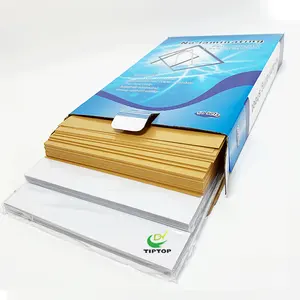
Tiptop máy in phun thẻ PVC A4 trắng vàng bạc in ấn không nhiều lớp tấm PVC
0,03 US$ - 0,05 US$
Min Order: 200 Cái
CNSupplier

Tranh Ba Tấm Hươu Vàng, Đá Cây Bắc Âu Tranh Vải Bố In Hd Hiện Đại Tranh Tường Nghệ Thuật Phong Cảnh Trang Trí Phòng/
4,50 US$ - 99,00 US$
Min Order: 3 Cái
Subjects: Animal
Type: Printed
Print Method: Multi-color printing
Original: Original
CNSupplier

Bán buôn tùy chỉnh in ấn PVC từ thẻ khách hàng thành viên thẻ kinh doanh thẻ với vàng bạc bột
0,02 US$ - 0,12 US$
Min Order: 100 Cái
CNSupplier

Thẻ In Ảnh Toàn Ký Bằng Pvc Chất Lượng Cao Thẻ Chất Liệu Laser Từ Nhà Cung Cấp Vàng
0,16 US$ - 0,45 US$
Min Order: 500 Cái
CNSupplier



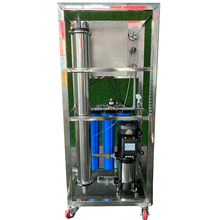






























 浙公网安备 33010002000092号
浙公网安备 33010002000092号 浙B2-20120091-4
浙B2-20120091-4